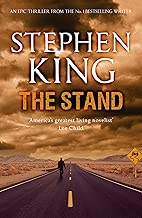When Truth is Stranger than Fiction - Debbie Bennett
So I started writing this bog in early March, conscious of my failure to come up with the goods in February. Early March, when reports were coming in and the world was just starting to wake up to the fact that this Chinese Thing might be something we ought to take seriously …
Sunday 5th April. And the world as we knew it has changed forever. Which might sound a bit over the top, but personally I don’t think things will ever be the same afterwards. If there even is an afterwards and this pandemic isn’t something we will have to learn to live alongside. Too many people have already lost their jobs and livelihoods. Have we done the right thing? I have to admit I’m in the camp which thinks that the cure may actually be worse than the disease and that more people will die from the economic impact than the virus. But we are lucky – we are healthy, we still have jobs and can work from home.
I suspect that over the coming years, the post-apocalyptic novel will be the Next Big Thing in the literary sphere. Cormac McCarthy, anyone? I confess I’ve not read The Road. I just can’t bring myself to wade through the lack of proper punctuation – for me it detracts from the story and jumps me out, and it’s just too much like hard work.
What else is out there currently? You have to kick off with the grand-daddy of the virus tale – good old Captain Tripps himself, from the pen of the great man Stephen King in The Stand. First published in 1978, I read this sometime in the 1980s and I’ve not yet tried the extended version, but I have to confess The Stand for me is forever entangled with Brat-Pack actors Rob Lowe, Molly Ringwald et al from the tv mini-series I saw in the mid-90s. Not that that’s a bad thing and it’s an excellent example of the post-apocalyptic novel. Continuing the SK thread and we have Cell, with the virus as a pulse on a cellphone network – if that ever became a possibility, the entire teenage population of the world would succumb within minutes!
There’s also Fever by Deon Meyer. One of my recent favourites – a post-apocalyptic tale of survival after the virus in South Africa. It was even a corona virus, I think. And AR Shaw’s China Pandemic – scarily accurate and currently seeing a resurge in sales.
Or space-viruses anyone? Cold Storage by David Koepp. It came from outer space – well this nasty little fungus-bug thingy did. Shoved deep underground for decades until everyone forgot exactly why they were supposed to keep the deep-store bit of the bunker nice and cold … can you tell I loved this book? And of course there’s Tess Gerritson’s Gravity – which is why you should never do experiments in space, anyway. And of course, the classic Andromeda Strain by Michael Crichton – who remembers seeing this on tv way back in the when?
But no zombies please. We could get into The Strain and The Passage – I don’t think either book actually mentions the Z-word, although that’s quite clearly what we are talking about. While making curtains, I’m half-watching Z Nation on Netflix. Same old, same old, but it passes the time while on lockdown!
Should we even be reading these books? Is it all too close to home at the moment? But that’s what we do as writers, face these fears and then skin them right down to the bone and analyse them. As a reader – and as a writer – we come out the other side having learned something new about ourselves. Let’s hope we can do it in real life too.
Stay safe, people.
www.debbiebennett.co.uk


Comments